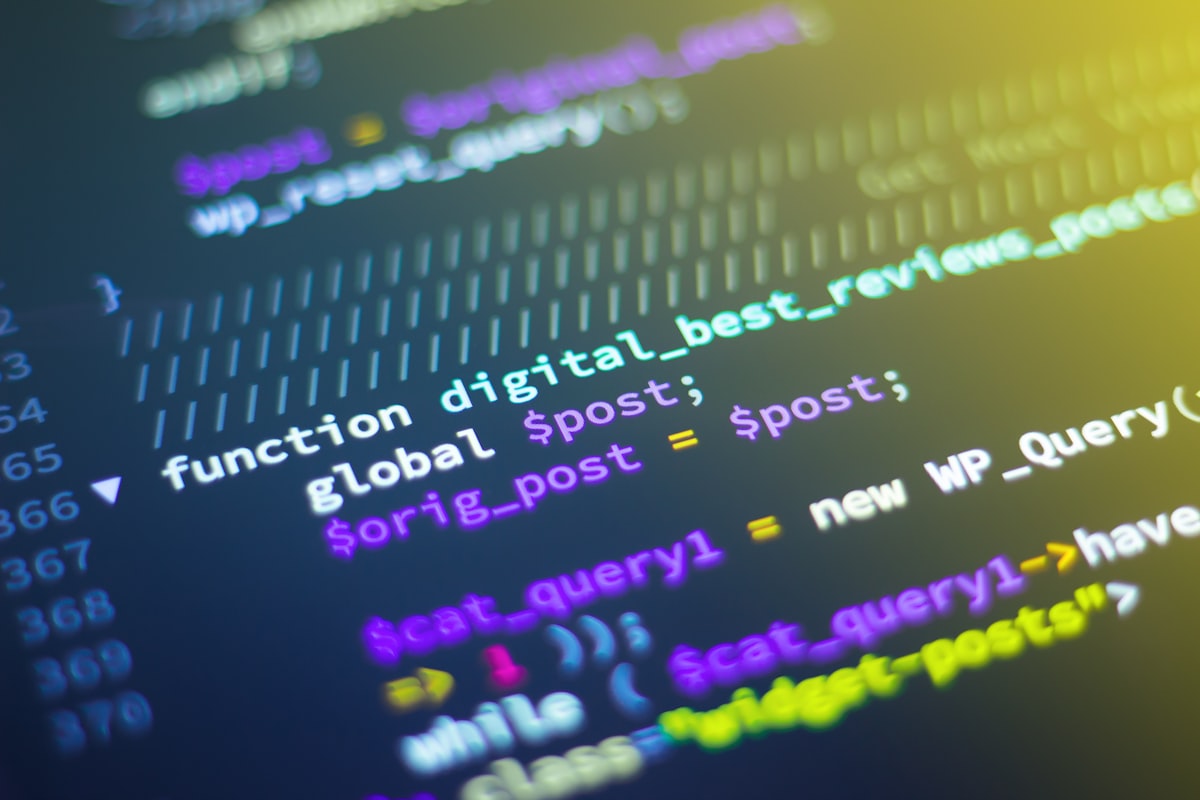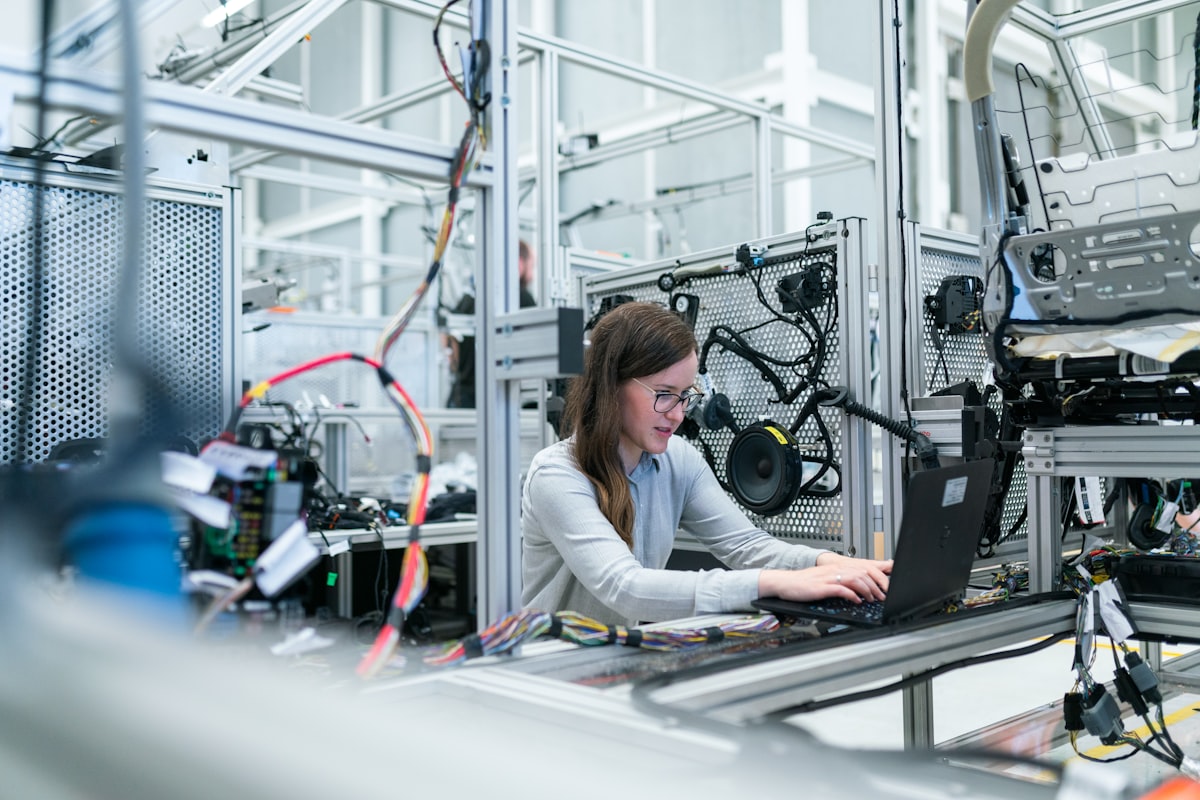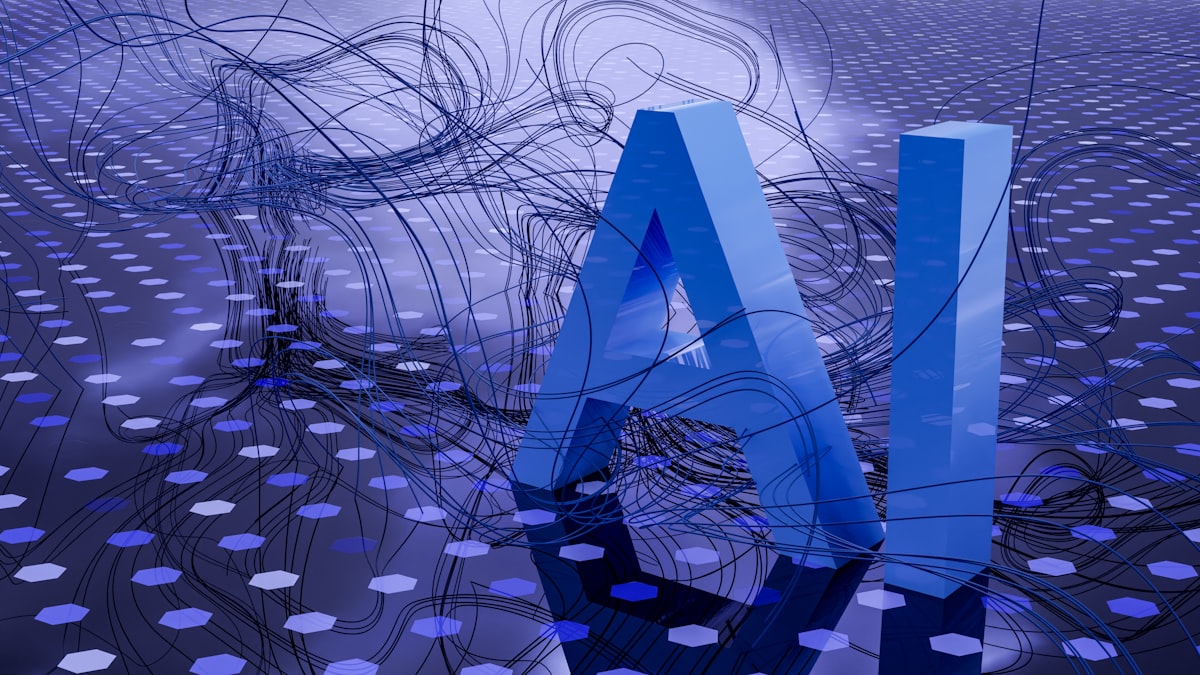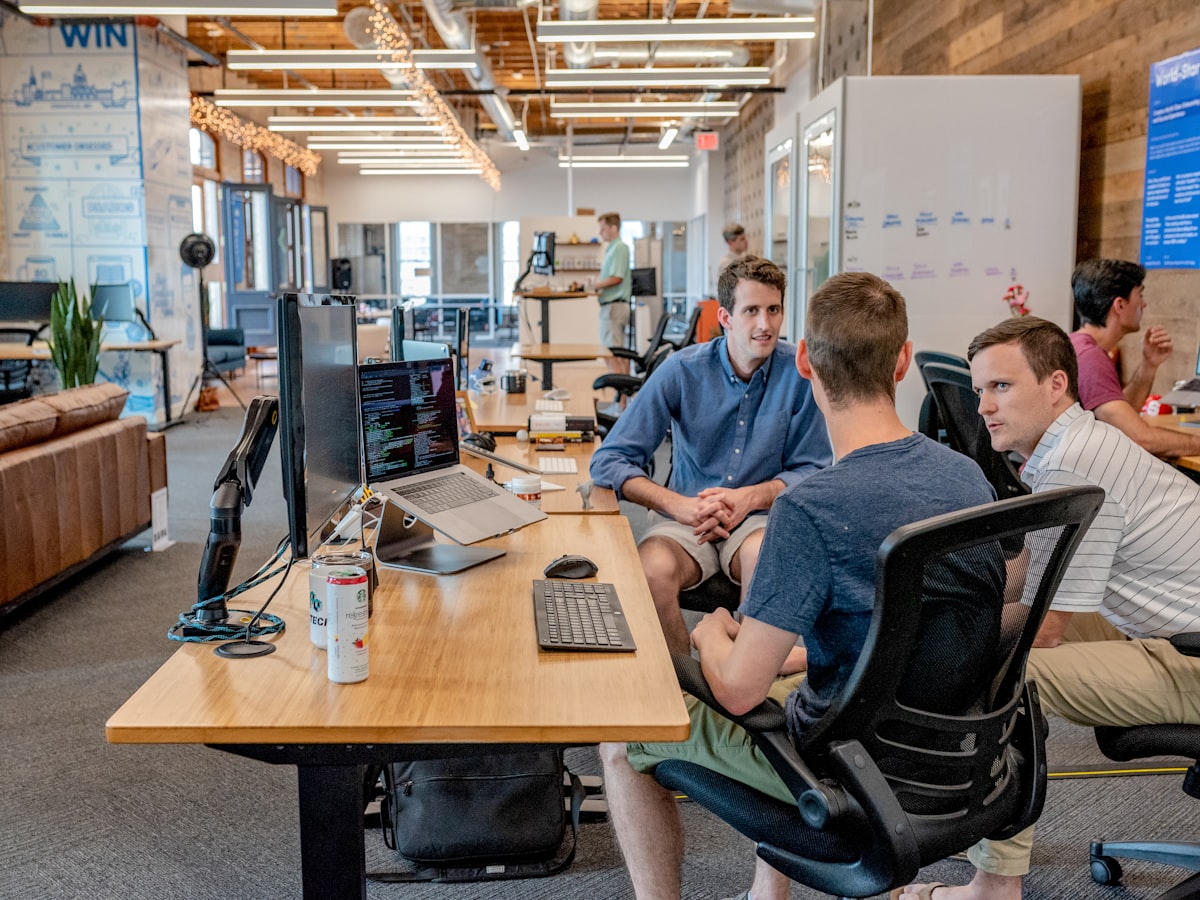Will AI Replace Developers? Here's the Truth Behind the Hype

Is AI coming for developer jobs? Explore the reality of AI in software development, from GitHub Copilot to the future of programming. Discover what developers really think and which skills will keep you ahead in the AI age.
Picture this: You're scrolling through tech news and see yet another headline about AI writing entire applications in minutes. Your heart skips a beat. 'Is this it?' you wonder. 'Is this the beginning of the end for developers?' If you're a software developer, you've probably had this moment of existential dread. The rise of AI coding tools like GitHub Copilot, ChatGPT, and Claude has sparked intense debate about the future of programming careers. But here's the thing – the reality is far more nuanced than the sensational headlines suggest.
The conversation about AI replacing human workers isn't new, but it's reached a fever pitch in the software development world. With AI systems now capable of generating code, fixing bugs, and even explaining complex algorithms, it's natural for developers to question their job security. But should you start updating your resume for a career change? The short answer is no – but the long answer is much more interesting and requires us to dig deeper into what AI can and cannot do in the realm of software development.
What Can AI Currently Do in Programming?
Let's start with the facts. AI has made remarkable strides in software development, and ignoring its capabilities would be just as foolish as overestimating them. Today's AI coding assistants are genuinely impressive, and they're already changing how many developers work on a daily basis. But what exactly can they do, and more importantly, what can't they do?
Current AI Programming Capabilities
- **Code Completion and Generation**: Tools like GitHub Copilot can suggest entire functions based on comments or partial code
- **Bug Detection and Fixing**: AI can identify common coding errors and suggest corrections
- **Code Documentation**: Automatically generating comments and documentation for existing code
- **Code Explanation**: Breaking down complex code into understandable explanations
- **Language Translation**: Converting code from one programming language to another
- **Test Generation**: Creating unit tests and test cases based on existing functions
- **Code Refactoring**: Suggesting improvements for code structure and efficiency
- **Pattern Recognition**: Identifying and implementing common programming patterns

Modern AI coding assistants like GitHub Copilot provide intelligent code suggestions and autocompletion
Popular AI Development Tools Making Waves
| Tool | Developer | Primary Function | Integration | Pricing Model |
|---|---|---|---|---|
| GitHub Copilot | GitHub/OpenAI | Code completion & generation | VS Code, JetBrains IDEs | Subscription |
| ChatGPT | OpenAI | Code explanation & debugging | Web interface, API | Freemium |
| Claude | Anthropic | Code analysis & problem solving | Web interface, API | Freemium |
| Tabnine | Tabnine | AI autocomplete | Multiple IDEs | Freemium |
| Replit Ghostwriter | Replit | Code generation & completion | Replit platform | Subscription |
| Amazon CodeWhisperer | Amazon | Code suggestions | VS Code, JetBrains | Free tier available |
| Sourcery | Sourcery | Code review & refactoring | Python IDEs | Freemium |
| DeepCode | Snyk | Bug detection & security | Git integrations | Freemium |
These tools are genuinely impressive. I've watched developers use GitHub Copilot to generate entire React components from a simple comment, or ask ChatGPT to explain a complex algorithm in plain English. The productivity gains are real – many developers report writing code 25-40% faster when using AI assistants. But here's where things get interesting: the more you use these tools, the more you realize their limitations.
Where AI Falls Short: The Human Developer Advantage
Here's where the rubber meets the road. While AI can generate code snippets and solve well-defined problems, software development is far more complex than just writing code. The most challenging aspects of a developer's job – the parts that require genuine expertise and creativity – remain firmly in human territory. Let's explore why that is, and why it's likely to stay that way.
What Humans Do Better Than AI
- **System Architecture and Design**: Understanding how different components should work together in complex systems
- **Business Logic and Requirements**: Translating real-world business needs into technical solutions
- **Creative Problem Solving**: Finding innovative solutions to unique challenges that haven't been solved before
- **User Experience Thinking**: Understanding how end users will interact with and experience the software
- **Team Collaboration**: Working effectively with designers, product managers, and other stakeholders
- **Context and Nuance**: Understanding the broader context of why something needs to be built a certain way
- **Debugging Complex Issues**: Tracing through interconnected systems to find root causes of problems
- **Security Considerations**: Thinking like an attacker and building defensive measures
- **Performance Optimization**: Understanding system bottlenecks and optimization strategies
- **Code Review and Mentoring**: Evaluating code quality and teaching other developers
Consider this real scenario: A startup needs to build a payment processing system that handles millions of transactions while complying with international regulations. AI might help generate individual functions or database queries, but it can't understand the business requirements, design the overall architecture, ensure PCI compliance, handle edge cases, or make crucial decisions about scalability and security. These require human judgment, experience, and creativity.
Real-World Examples: AI-Assisted Development in Action
The best way to understand AI's role in development is to look at how it's actually being used in the wild. Companies and individual developers are finding creative ways to leverage AI tools to enhance their productivity without replacing human judgment. These examples show the collaborative relationship between humans and AI, rather than a replacement scenario.
How Companies Are Using AI in Development
- **Microsoft**: Uses AI for code review automation and bug detection in their massive codebase, but human developers still make all architectural decisions
- **Google**: Employs AI for code completion and testing, while engineers focus on system design and innovation
- **Netflix**: Leverages AI for automated testing and deployment scripts, freeing developers to work on user experience and content algorithms
- **Shopify**: Uses AI to generate boilerplate code and documentation, allowing developers to focus on merchant-facing features
- **Stripe**: Implements AI for fraud detection code generation while developers design the overall payment architecture
- **GitHub**: Obviously uses Copilot internally, but their most complex features still require human creativity and problem-solving
| Development Task | Human-Only Workflow | AI-Assisted Workflow | Time Saved | Quality Impact |
|---|---|---|---|---|
| Writing unit tests | Manual test writing (60 min) | AI generates, human reviews (25 min) | 58% | Similar quality with review |
| Code documentation | Manual documentation (45 min) | AI generates, human edits (15 min) | 67% | More consistent format |
| Bug fixing | Manual debugging (90 min) | AI suggests fixes, human validates (60 min) | 33% | Faster identification |
| API integration | Research + implement (120 min) | AI boilerplate + human logic (80 min) | 33% | Reduced boilerplate errors |
| Code refactoring | Manual analysis (150 min) | AI suggestions + human decisions (100 min) | 33% | More comprehensive analysis |
| Database queries | Manual SQL writing (30 min) | AI generates, human optimizes (20 min) | 33% | Faster initial draft |

Modern development teams use AI as a collaborative tool to enhance productivity while maintaining human oversight
What Developers Think: Fear or Opportunity?
The developer community's reaction to AI coding tools has been fascinating to watch. Initial skepticism has largely given way to curiosity and adoption, but concerns remain. Recent surveys and community discussions reveal a complex mix of excitement, pragmatism, and healthy skepticism. Let's look at what developers are actually saying about AI's impact on their work.
What the Data Shows
According to GitHub's 2023 Developer Survey, 92% of developers are already using AI coding tools, with 70% saying they plan to increase their usage. However, only 15% believe AI will replace developers entirely. Stack Overflow's 2023 survey found that 77% of developers have a favorable view of AI tools, but 43% are concerned about over-reliance on AI-generated code.
Developer Perspectives: The Good and The Concerning
- **What Developers Love About AI:**
- • Faster prototyping and boilerplate generation
- • Help with unfamiliar programming languages
- • Quick solutions for common problems
- • Better code documentation and comments
- • Learning new coding patterns and techniques
- **What Developers Worry About:**
- • Over-dependence reducing problem-solving skills
- • AI-generated code quality and security issues
- • Potential job market changes for junior developers
- • Loss of deep understanding when relying too heavily on AI
- • Intellectual property and code ownership concerns
"AI hasn't replaced me, but a developer using AI tools effectively probably will outcompete one who doesn't. It's like the calculator didn't replace mathematicians, but mathematicians who could use calculators became more productive." - Senior Software Engineer at a Fortune 500 company
The Future of Development Jobs in the Age of AI
Rather than eliminating developer jobs, AI is reshaping what it means to be a developer. The role is evolving from pure code writing to a more strategic, architectural, and collaborative position. Think of it like the evolution from manual calculation to computer-assisted analysis – the fundamental skills became more valuable, not less.
New and Evolving Developer Roles
- **AI-Assisted Developer**: Traditional developers who effectively leverage AI tools for enhanced productivity
- **Prompt Engineers**: Specialists who craft effective prompts for AI coding tools and systems
- **AI Code Reviewers**: Experts who specialize in reviewing and validating AI-generated code
- **Human-AI Collaboration Specialists**: Developers who design workflows that optimize human-AI teamwork
- **AI Tool Integrators**: Specialists who implement and customize AI development tools for teams
- **Code Quality Auditors**: Experts who ensure AI-generated code meets security and performance standards
- **System Architects**: High-level designers who focus on overall system design while AI handles implementation details
- **Developer Experience Engineers**: Specialists who optimize the developer workflow including AI tool integration
The job market data is encouraging for developers. Despite AI advancement, demand for software developers is projected to grow 25% from 2021 to 2031, much faster than average according to the Bureau of Labor Statistics. However, the nature of these jobs is changing – there's increasing demand for developers who can work effectively with AI tools and focus on higher-level problem solving.

The future developer workspace will emphasize human-AI collaboration and strategic thinking
Skills Developers Should Focus on Now
The key to thriving as a developer in the AI age isn't to compete with AI, but to focus on uniquely human skills and learn to work effectively alongside AI tools. Some skills become more important, others remain constant, and entirely new competencies emerge. Here's your roadmap for staying relevant and valuable.
Essential Technical Skills for AI-Era Developers
| Skill Category | Specific Skills | Why It Matters | How to Develop |
|---|---|---|---|
| System Design | Architecture, Scalability, Microservices | AI can't design complex systems | Study system design patterns, practice architecture interviews |
| Security | Secure coding, Penetration testing, Compliance | AI often misses security considerations | Take security courses, practice ethical hacking |
| Performance Optimization | Profiling, Database tuning, Caching | Requires deep system understanding | Profile real applications, study performance patterns |
| DevOps & Infrastructure | CI/CD, Cloud platforms, Monitoring | Critical for modern development | Get cloud certifications, practice infrastructure as code |
| Data Structures & Algorithms | Complex algorithms, Optimization | Foundation for all programming | Practice competitive programming, study algorithm complexity |
| AI Tool Proficiency | Prompt engineering, AI debugging | Essential for working with AI | Use AI tools daily, experiment with different approaches |
Soft Skills That Matter More Than Ever
- **Communication**: Explaining technical concepts to non-technical stakeholders becomes crucial as you work at higher levels
- **Critical Thinking**: Evaluating AI suggestions and making strategic decisions about implementation
- **Creativity**: Solving novel problems that AI hasn't encountered before
- **Business Acumen**: Understanding how technology decisions impact business outcomes
- **Mentoring**: Teaching other developers and reviewing AI-generated code
- **Adaptability**: Staying current with rapidly evolving AI tools and development practices
- **Collaboration**: Working effectively in human-AI hybrid teams
- **Problem Definition**: Clearly articulating problems for both humans and AI to solve
Learn More: AI and Software Development Resources
Whether you're looking to understand AI tools better, develop AI-resistant skills, or even transition into AI-related development roles, there are excellent resources available. The key is to approach learning strategically – focus on skills that complement AI rather than compete with it.
Recommended Learning Strategy
- **Get Hands-On with AI Tools**: Start using GitHub Copilot, ChatGPT, or Claude in your daily work
- **Learn System Design**: Focus on architecture and high-level thinking skills
- **Deepen Security Knowledge**: Understand security principles that AI often misses
- **Practice Code Review**: Develop skills in evaluating and improving code quality
- **Study Business Context**: Learn how technical decisions impact business outcomes
- **Develop Communication Skills**: Practice explaining technical concepts clearly
- **Stay Current**: Follow AI development trends and new tool releases
- **Build Portfolio Projects**: Create projects that showcase human-AI collaboration
Essential Resources for AI-Era Developers
GitHub Copilot Documentation
Official guide to using GitHub Copilot effectively in your development workflow
System Design Interview
Learn system design principles that remain crucial in the AI era
Coursera Software Architecture
University-level software architecture and design courses
High Scalability Blog
Real-world system design case studies and architecture insights
Practical Steps to Start Today
- **This Week**: Install GitHub Copilot or try ChatGPT for coding assistance, but review every suggestion carefully
- **This Month**: Take a system design course and practice designing architectures without AI help
- **Next Quarter**: Build a project that showcases your ability to work with AI tools while maintaining code quality
- **This Year**: Develop expertise in a specialized area like security, performance, or domain-specific architecture
- **Ongoing**: Stay engaged with developer communities discussing AI tools and best practices
Conclusion: Will AI Replace Developers or Make Them Better?
After examining the current state of AI in software development, talking to developers using these tools, and looking at real-world implementations, the answer becomes clear: AI won't replace developers, but developers who effectively use AI will likely outperform those who don't. The technology is powerful, but it's a tool that amplifies human capability rather than replacing human judgment.
The most successful developers of the future will be those who embrace AI as a collaborative partner while doubling down on uniquely human skills. They'll use AI to handle routine tasks and generate initial code drafts, but they'll provide the creativity, business understanding, architectural thinking, and quality judgment that makes software truly valuable. It's not about human versus AI – it's about human with AI.
The demand for software continues to grow exponentially, and AI tools are helping us meet that demand more efficiently. Rather than eliminating jobs, AI is likely to create new types of developer roles while making existing developers more productive. The key is to adapt, learn, and evolve with the technology rather than resist it.
If you're a developer worried about AI taking your job, channel that energy into learning and growth. The skills that make you valuable as a developer – problem-solving, creative thinking, understanding user needs, and building robust systems – aren't going anywhere. AI is just giving you a more powerful toolkit to express those skills.
Ready to future-proof your development career? Start by exploring AI coding tools today, then focus on developing the strategic and architectural skills that will keep you valuable in the AI era. Check out our comprehensive programming and AI courses to build the skills that matter most for tomorrow's developers.
Tags:
Related Posts

Comments
Leave a Comment
No comments yet
Be the first to share your thoughts!



